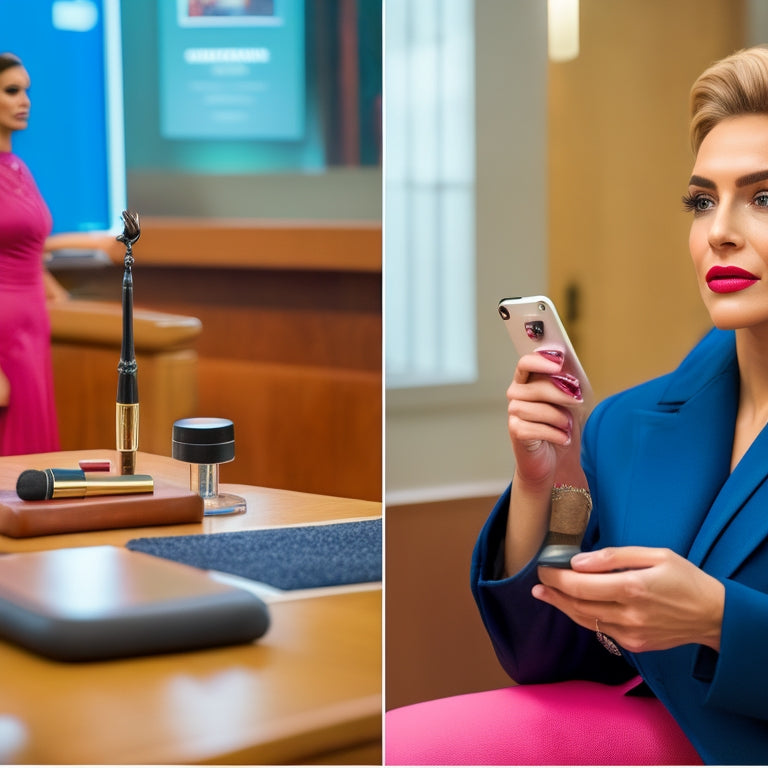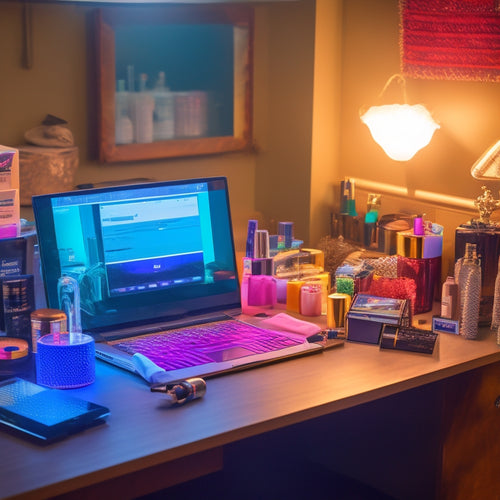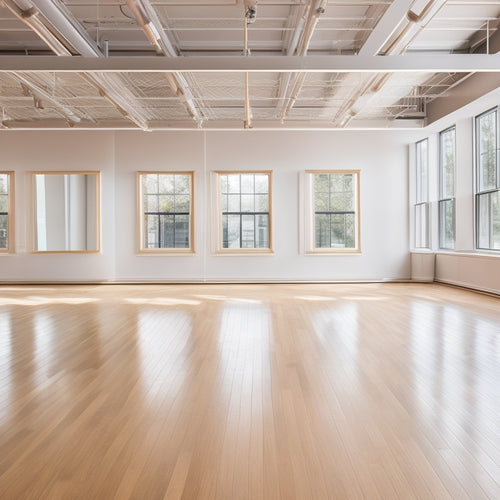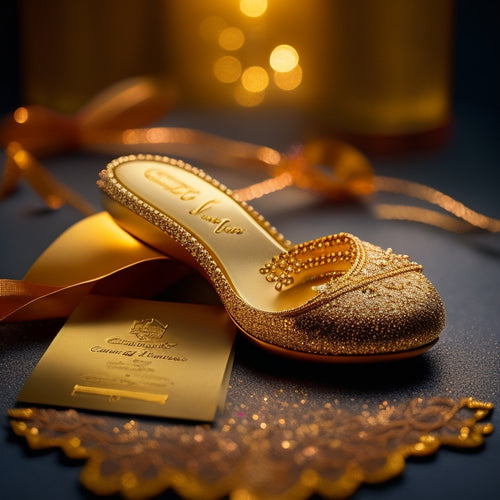
Legal Battle: TikTok's Makeup Looks Ownership Uncertainty
Share
TikTok's rise in popularity has sparked a legal battle over makeup looks ownership, leaving creators vulnerable to exploitation. Copyright laws apply, but the lack of clear guidelines on ownership makes it challenging for artists to enforce their rights. Social media platforms, especially TikTok, need to establish clear policies on ownership and dispute resolution to empower creators. Without protection, artists risk losing control over their original content. As the debate unfolds, one thing is clear: the need for urgent solutions to safeguard creators' intellectual property rights and prevent unauthorized use of their unique makeup looks.
Key Takeaways
• Makeup artists on TikTok lack clear ownership rights, making them vulnerable to exploitation and unauthorized use of their original makeup looks.
• Unclear guidelines on ownership and dispute resolution hinder artists from enforcing their intellectual property rights, leading to potential legal battles.
• Social media platforms, like TikTok, must establish clear policies on ownership and dispute resolution to protect creators' intellectual property rights.
• Legal documentation, including dates and timestamps, is crucial for copyright protection, and watermarking techniques can deter unauthorized use of makeup looks.
• Clear ownership establishment is essential to protect intellectual property, enable creator recognition, and prevent unauthorized use of original makeup looks on TikTok.
Makeup Artists' Rights in Jeopardy
As the popularity of makeup tutorials on TikTok continues to soar, the legal ownership of these looks remains uncertain, leaving many makeup artists vulnerable to exploitation and intellectual property theft. The lack of clear guidelines on ownership creates difficulties in proving ownership, making it challenging for artists to enforce their rights.
Copyright laws apply to makeup looks, but the absence of explicit protection leaves artists exposed. Ownership disputes arise when others replicate and profit from original looks without permission, threatening the artists' creative control and financial compensation. The uncertainty surrounding ownership rights hinders the ability of makeup artists to protect their intellectual property, putting their careers and reputation at risk.
Social Media's Role in Protection
Social media platforms, particularly TikTok, bear a significant responsibility in protecting creators' intellectual property rights by establishing and enforcing clear policies on ownership and handling disputes efficiently. By doing so, they can empower creators to take control of their original content.
Platform policies should provide clear guidelines on ownership, ensuring that creators understand their rights and can assert them when necessary. Efficient dispute resolution mechanisms are also pivotal in resolving ownership conflicts quickly and fairly.
Safeguarding Original Creations
Many makeup artists on TikTok invest significant time and effort into developing unique looks, highlighting the importance of safeguarding original creations through proactive measures to prevent unauthorized use.
To ensure copyright protection, creators should prioritize legal documentation of their creations, including dates and timestamps of concept development. Additionally, they should consider watermarking techniques to deter unauthorized use.
By taking these steps, makeup artists can establish clear ownership and protect their intellectual property. This not only prevents exploitation but also enables creator recognition, which is vital for career advancement and opportunities.
Frequently Asked Questions
Can Makeup Artists Register Their Looks With the U.S. Copyright Office?
Makeup artists can theoretically register their looks with the U.S. Copyright Office, but it's a challenging task, as they'd need to prove unique creative expression, making it a challenging and complex process for copyright protection.
Do Fair Use Laws Apply to Makeup Looks on Tiktok?
She analyzes whether fair use laws apply to makeup looks on TikTok, considering the nuances of fair use interpretation and its impact on creative expression, amidst the ever-evolving landscape of social media trends and makeup trends.
Can Tiktok Users Use Makeup Looks for Personal, Non-Commercial Use?
She argues that TikTok users can use makeup looks for personal, non-commercial use without infringing on copyright laws, as long as they don't profit from or misattribute the original creator's work.
Are Makeup Looks Protected by International Intellectual Property Laws?
Did you know that 60% of makeup artists on social media report having their work copied without credit? As makeup trends spread globally, international intellectual property laws do protect makeup looks, but social media ownership complexities muddy the waters.
Can Ai-Generated Makeup Looks Be Copyrighted by Their Creators?
Creators of AI-generated makeup looks face copyright implications, as the lines between human and machine creativity blur; they must navigate evolving legal frameworks to determine ownership and protection of their innovative, algorithm-driven designs.
Related Posts
-

Why Dance Makeup Artists Need Online Solutions
As a dance makeup artist, you're likely struggling to attract clients and grow your business due to poor online visib...
-

Best Studio Mirrors for a Professional Dance Space
Choosing the best mirrors for your professional dance space can enhance your practice. High-quality glass mirrors pro...
-

Dazzling Ballet Ticket Unveiled
The anticipation is over, as the dazzling ballet ticket design has finally been revealed, exuding elegance and sophis...


